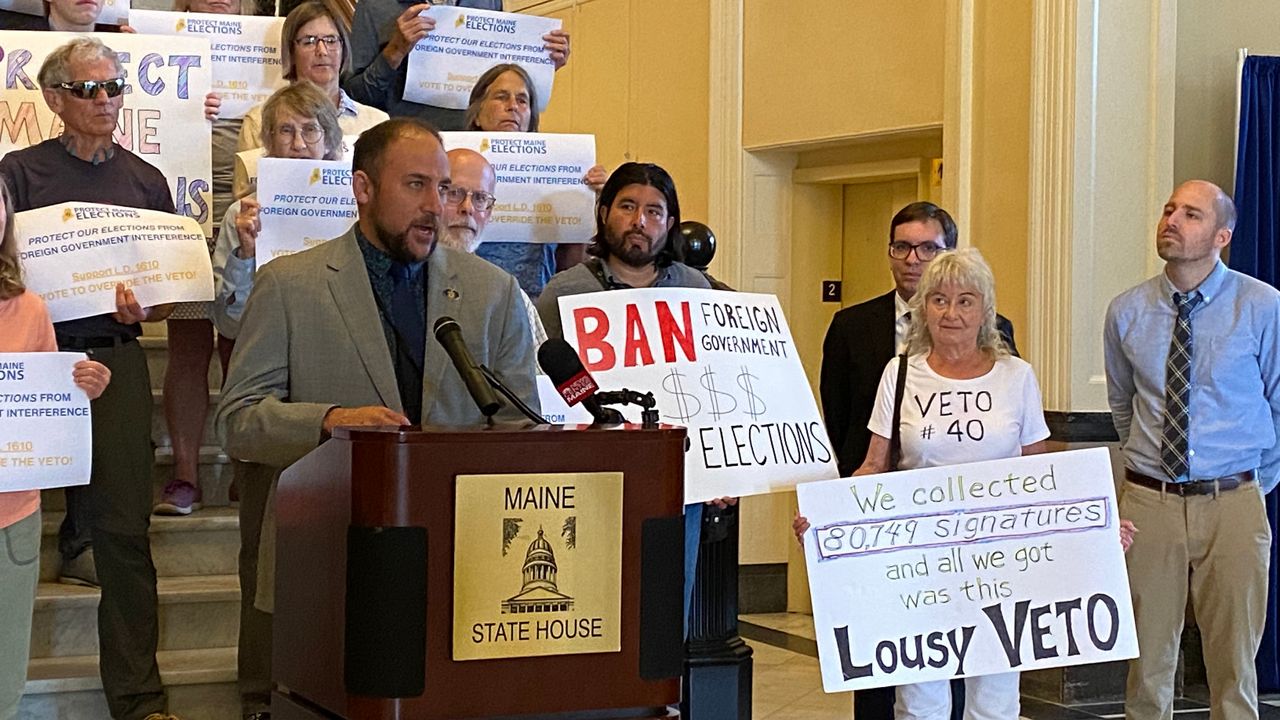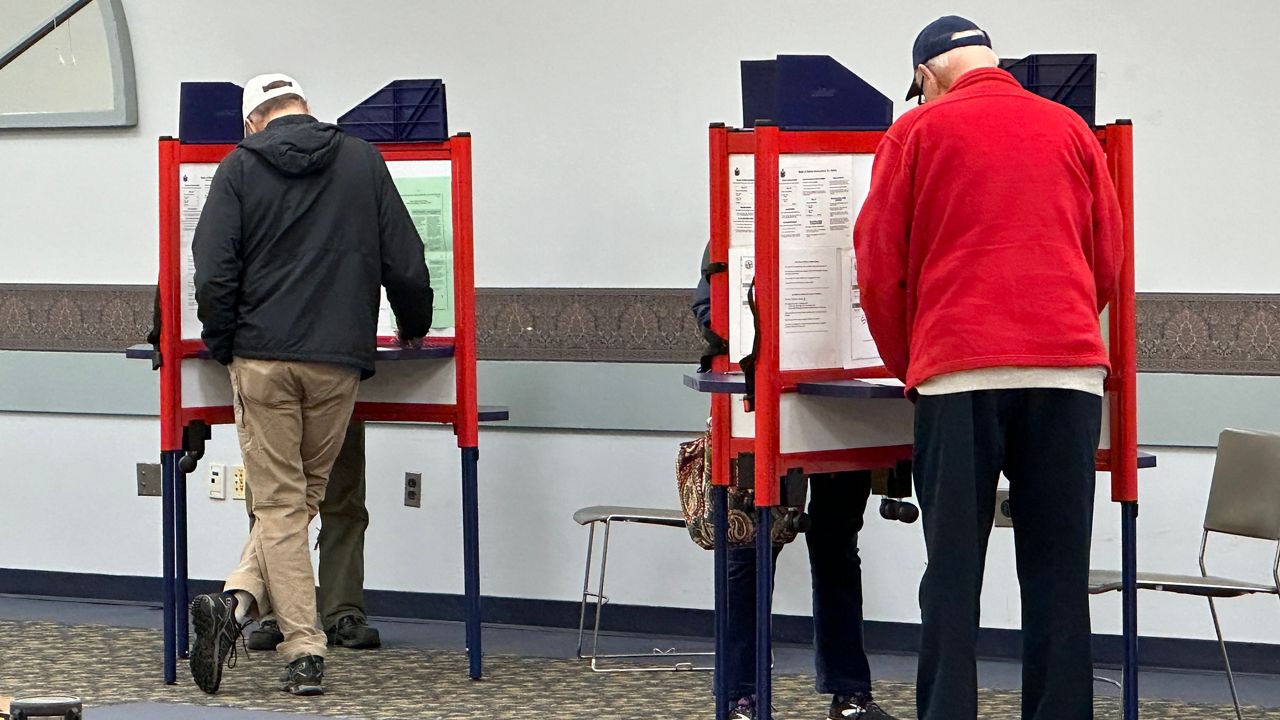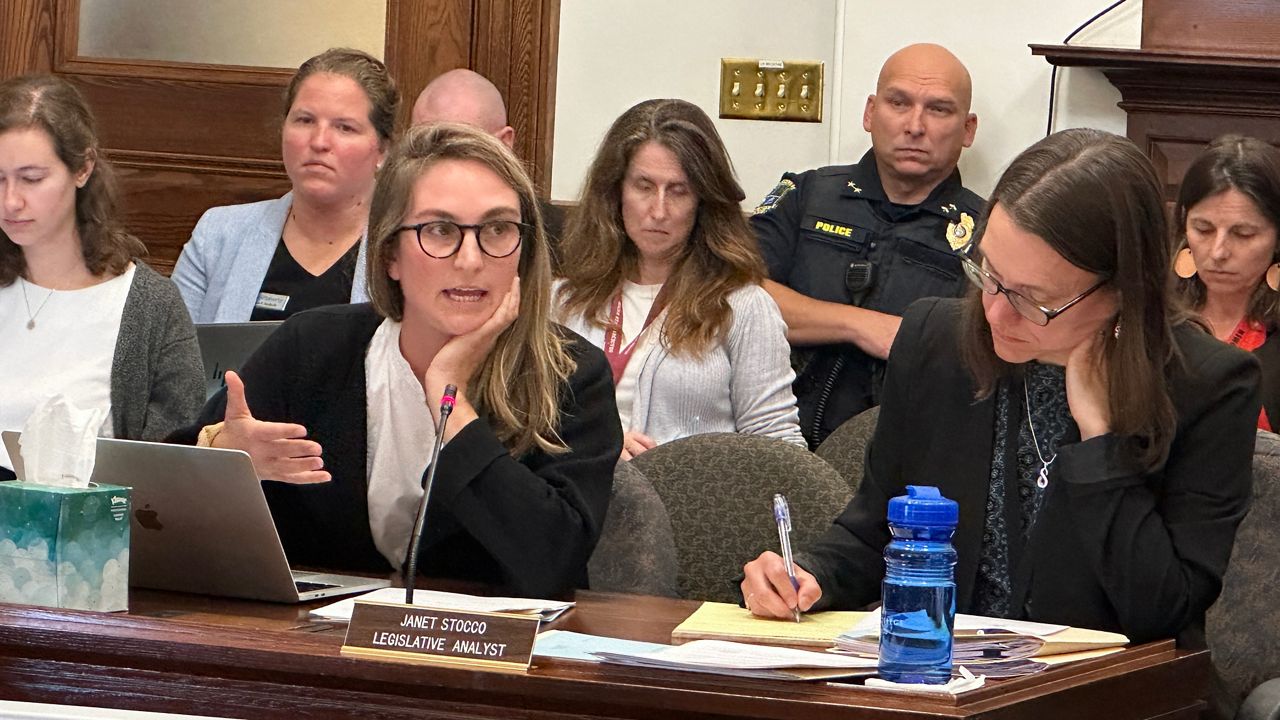Question 2 on the November ballot asks voters if they want to prohibit foreign governments from spending on Maine ballot initiatives.
Supporters say it’s a way to ensure Mainers maintain control over what happens in their state.
“It’s a modest effort to make Maine elections about Maine people and our needs,” said Sen. Rick Bennett (R-Oxford).
But opponents say it could prevent some Maine companies with foreign government investors from having their say and would put an added burden on the media to determine who should be allowed to advertise in Maine — and who shouldn’t.
The question appears on the Nov. 7 ballot following a citizen initiative process to gather the signatures necessary to put it before voters.
Efforts to gather more than 80,000 signatures began following the 2021 vote on the Central Maine Power corridor.
According to campaign finance reports, that campaign attracted a record $90 million in spending, more than $20 million of which came from Hydro Quebec, which is owned by the Canadian government.
The Maine State Chamber of Commerce and Maine Forest Products Council are opposed to the measure.
Ben Lucas, a chamber representative, told lawmakers earlier this year that the measure “would present serious operational difficulties for Maine businesses and impede their ability to protect and advocate for their legitimate interests.”
“Additionally, we believe that this legislation is targeting a specific company, Hydro-Quebec over the New England Clean Energy Connect,” he wrote. “This is not a reasonable way to make policy and it sends a troubling signal to companies that may be looking to invest in Maine that they could be the subject of targeted legislation like this.”
Kaitlin LaCasse of Protect Maine Elections, the group behind the initiative, said the effort goes far beyond the CMP corridor fight.
“It would put elections back in the hands of Maine people,” she said. “This is about much more than one issue or entity.”
Protect Maine Elections has spent more than $700,000 to promote the ballot question, with the largest donor being American Promise Inc., according to state campaign finance reports.
American Promise Inc., which has donated $205,000 through Sept. 30, is a national nonprofit working to add a 28th Amendment to the Constitution to limit election spending.
If Question 2 is approved by Maine voters this fall, it would extend a prohibition that’s already in place for candidate elections.
Bennett said it’s important to remember there’s a distinction between foreign-owned businesses and foreign-government owned entities. The initiative defines a foreign entity as one with 5% investment by a foreign government.
“It doesn’t mean they can’t speak to the Rotary Club or write op-eds,” Bennett said. “They wouldn’t be able to do electioneering.”
After it passed the Legislature earlier this year, Gov. Janet Mills vetoed the legislation, saying that while she too wants to keep foreign money out of Maine elections, the prohibition could have unintended consequences.
Her veto message states that “the language of the bill is too broad and would likely result in the unintended consequence of effectively silencing legitimate voices, including Maine-based businesses, in debates that would impact their interests.”
The Maine Press Association and the Maine Association of Broadcasters also oppose the measure, saying that it would require them to find out if advertisements are paid for by “a foreign government-influenced entity.”
“This law would essentially require broadcast outlets to become detective agencies, tasked with investigating the source of funding for any and all campaigns,” wrote Tim Moore, president/CEO of the Maine Association of Broadcasters.
When it comes to Maine businesses, LaCasse said the narrow definition in the proposal means it will have little impact.
“These companies are not Maine companies they are companies foreign governments own, influence or control,” she said.
Seven states currently prohibit foreign nationals from making contributions to ballot measure campaigns. But that’s different from prohibiting a foreign entity from spending on a ballot initiative, Mills wrote in her veto letter.
In the Maine proposal “the definition of ‘foreign-influenced entity’ requires one to know the level of foreign government investment in a privately held or publicly traded business — a much more in depth and difficult question to answer,” Mills wrote.
Bennett said a 2021 Federal Election Commission ruling requires states to take action to prohibit foreign government spending on ballot questions.
“We need to close this loophole,” he said.







)

